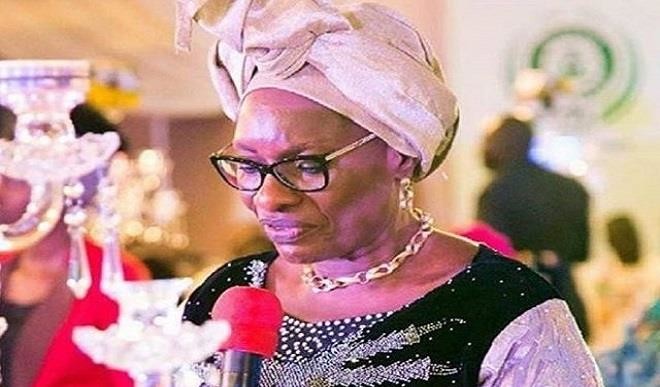The Minister of Women Affairs, Dame Pauline Tallen, has expressed concern that despite the rapid growth of the country’s info-tech sector, only few women have the opportunity to participate at the ecosystem, which is largely dominated by men.
She said this yesterday in Abuja at the second annual gender justice conference in commemoration of the 2023 International Women’s Day (IWD), organised by Christian Aid UK-Nigeria, in collaboration with the Federal Ministry of Women Affairs and other development partners.
She expressed grave concern about the continuity and interrelation between offline and online violence; harassment and discrimination against women and girls.
She also said it was disheartening that only about 30 per cent of 93 surveyed technology companies in Nigeria are owned by women and more than third of these companies employed no woman at all as stated by the National Bureau of Statistics (NBS).
Binani: Tallen urges Buhari to intervene in primary election nullification
Maternal mortality still high in North Central – WHO
“In Nigeria, the information and communication technology (ICT) sector has contributed 18.44 per cent to Nigeria’s gross domestic product (GDP) in the second quarter of 2022, and the industry is projected to experience more leap in the future.
“This growth is significant when compared to the fact that ICT contributed less than 1 per cent to Nigeria’s GDP in 2001. However, women are not part of this landmark achievement despite that more can be achieved with their involvement,” Tallen said.
Also, the Country Director of Christian Aid-Nigeria, Dr Temitope Fashola, said culture, tradition and religion which are the main drivers of gender disparity and inequality also have a huge potential of reversing the situation and tilt the balance of power in favour of the marginalised.
He said the steps to achieving this were through the empowerment of women and girls to take ownership of their own development.
“It is high time we amplified the alarming and fast-rising gender digital gap fostered by lack of digital skills, limited access to internet connectivity, cyber violence, harassment and abuse against women.
“The modern exhibition of dangerous socialisation deeply entrenched in socio-cultural norms that promote gender-based discrimination is spoken against, and marginalised groups should be supported in order to live life in all its fullness to thrive in communities,” Fashola said.

 Join Daily Trust WhatsApp Community For Quick Access To News and Happenings Around You.
Join Daily Trust WhatsApp Community For Quick Access To News and Happenings Around You.


